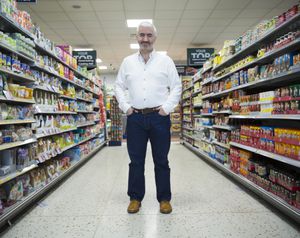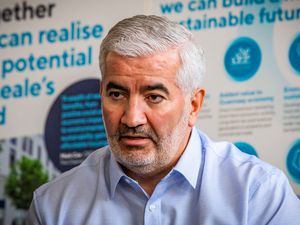‘There’s still a lot of love for Co-op stamps’
THE Channel Islands Co-operative Society is looking at updating its iconic dividend stamps – and phasing out single-use carrier bags.

Asked about whether a card might replace the stamps, chief operating officer Mark Cox said the society was working on a number of initiatives and would be engaging with members as to what the options could be in future.
‘We’ve been working on how we update our loyalty programme, those stamps. So, it requires some technology changes and we’re working through some system upgrades at the moment,’ said Mr Cox.
‘They’re going to take us over the next 18 months. That enables us to make some changes to that scheme should our members want that. So, we have got further research to do. The initial research showed that people, or a large percentage of our members, would like to see that change.
‘But there is still a lot of love for those stamps. So, we’ve got to be very mindful. It’s very, very successful and people like to see them. They’re very tangible, see them being collected and being able to come in and spend them.’
Mr Cox added: ‘We’re working on some initiatives and we’ll be out and engaging with members as to what those options are in the future.’
The chief operating officer also said that it was looking at how it could reduce plastic usages. ‘We did some engagement with members around carrier bags last year and we will be phasing out single-use carrier bags and focusing on our bag for life.
‘Members supported that. That came through in the research. So there’s one element.’
The society is hoping to introduce the initiative over the next couple of months as it runs through existing stocks of single-use carrier bags. It is also looking at plastic in packaging.
‘What I would urge initially is some caution in that we need some time to deal with it and as a society remembering that we are a small independent,’ said Mr Cox.
‘We can’t go out to large manufacturers telling them that we’ll stop selling their product unless they get rid of plastic.
‘Equally, some of that plastic is really beneficial to the product. We need to remember that because it manages the waste, it extends the shelf life of it. But where we can, we have been taking plastic out – and pizzas is a good example. There was a plastic base in there. That’s gone.’
Mr Cox also stressed the importance of encouraging the recyclability of materials and going on a journey with consumers and suppliers to address the issues.





